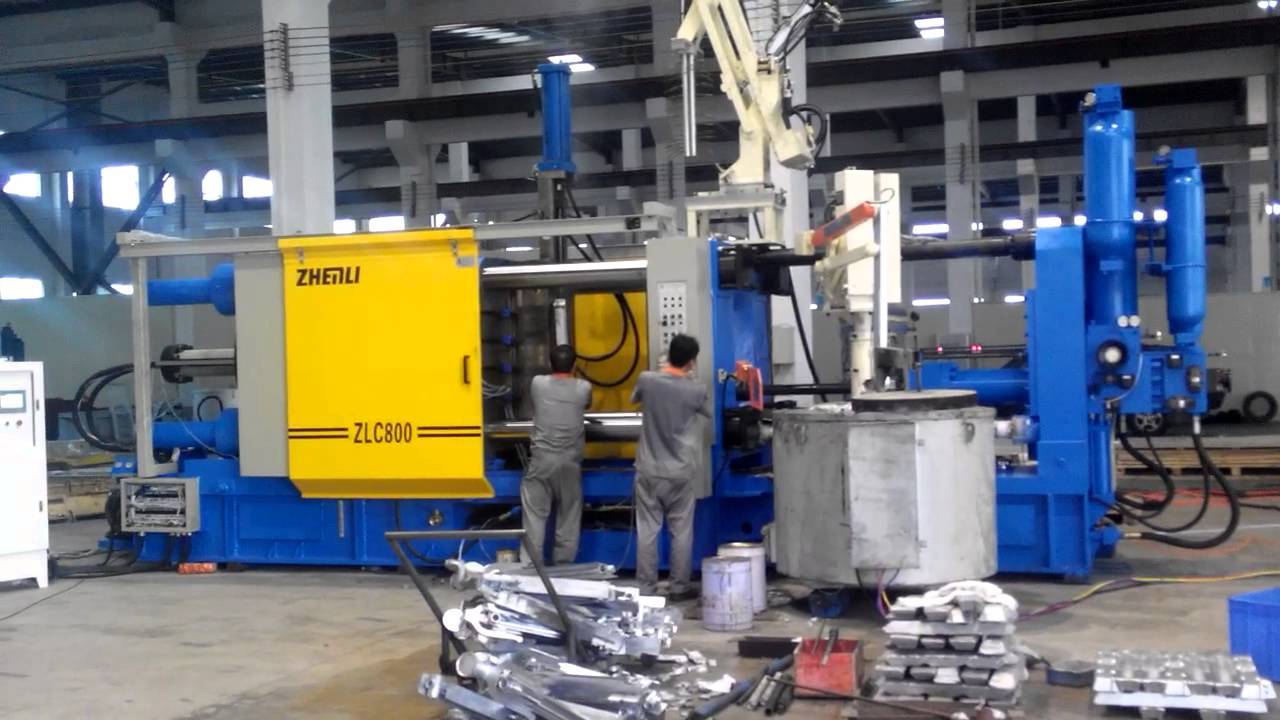Die Casting Manufacturers
Die Casting Manufacturers
From Raheel Bhatti
I'm raising money for a cause I care about, but I need your help to reach my goal! Please become a supporter to follow my progress and share with your friends.
Subscribe to follow campaign updates!
More Info

In the world of manufacturing, die casting is a highly efficient and reliable process for producing complex metal parts. This method is widely used across various industries, from automotive to electronics, due to its ability to produce high-quality, durable components with excellent dimensional accuracy. However, selecting the right die casting manufacturer is crucial to ensuring the success of your project. Additionally, silicone molding companies play a complementary role in producing parts with different material requirements.
The Role of Die Casting in Modern Manufacturing
Die casting is a manufacturing process that involves injecting molten metal into a mold cavity under high pressure. The molds, also known as dies, are typically made from hardened steel and are designed to produce parts with intricate shapes and fine details. This process is ideal for mass production because it allows for the consistent production of high-quality parts with minimal post-processing.
Die casting offers several advantages over other manufacturing methods:
Die casting is widely used in various industries, including:
Automotive: Engine components, transmission parts, and other critical automotive parts are often produced using die casting due to the need for strength and precision.
Electronics: Die casting is used to produce housings, connectors, and other electronic components that require high dimensional accuracy.
Consumer Goods: Products like appliance housings, power tools, and furniture hardware are commonly manufactured using die casting.
Choosing the Right Die Casting Manufacturer
Selecting the right die casting companies is crucial to ensuring the success of your project. Here are some factors to consider when choosing a die casting partner:
One of the most important factors to consider is the manufacturer’s expertise and experience in the industry. Experienced die casting companies, like IMMould, have a deep understanding of the process and can provide valuable insights and recommendations to optimize your design and production process.
Quality is paramount in die casting, as even small defects can lead to significant issues in the final product. Look for manufacturers that have robust quality control processes in place, including rigorous inspection and testing procedures. This ensures that the parts produced meet the required specifications and are free from defects.
The choice of material is critical in die casting, as it directly impacts the strength, durability, and performance of the final product. A good die casting manufacturer should offer a range of material options, including aluminum, zinc, and magnesium alloys, and should be able to recommend the best material for your specific application.
Working with a die casting manufacturer that offers design support can be highly beneficial. Experienced manufacturers can provide guidance on optimizing your design for die casting, helping to reduce costs and improve the manufacturability of your parts.
Consider the production capacity of the manufacturer to ensure they can meet your volume requirements. Whether you need a small batch or a large production run, the manufacturer should have the capability to scale production as needed.
While cost should not be the only factor in your decision, it’s important to work with a manufacturer that offers competitive pricing without compromising on quality. Look for a manufacturer that can provide a detailed cost breakdown and help you identify potential cost-saving opportunities.
The Role of Silicone Molding Companies
In addition to die casting, silicone molding is another essential process in modern manufacturing, particularly for producing parts that require flexibility, chemical resistance, or high-temperature stability. Silicone molding companies specialize in producing parts made from silicone rubber, which is widely used in the medical, automotive, and consumer goods industries.
Silicone molding offers several benefits:
Flexibility: Silicone rubber is highly flexible, making it ideal for producing parts that need to bend or stretch without breaking.
Chemical Resistance: Silicone is resistant to a wide range of chemicals, making it suitable for use in harsh environments.
High-Temperature Stability: Silicone can withstand high temperatures without degrading, making it ideal for applications that involve exposure to heat.
Silicone molding is commonly used in the production of:
Medical Devices: Silicone is often used in medical devices and implants due to its biocompatibility and flexibility.
Seals and Gaskets: Silicone’s ability to withstand extreme temperatures and harsh chemicals makes it ideal for seals and gaskets in automotive and industrial applications.
Consumer Products: Silicone is used in a wide range of consumer products, including kitchenware, baby products, and electronics.
Conclusion
Selecting the right die casting manufacturer is a critical step in ensuring the success of your manufacturing project. By considering factors such as expertise, quality assurance, material selection, and production capacity, you can choose a partner that meets your specific needs. Additionally, silicone molding companies play a complementary role in producing parts that require the unique properties of silicone rubber. With the right manufacturing partners, like IMMould, you can ensure that your products are of the highest quality and meet the demands of your industry.
Campaign Wall
Join the Conversation
Sign in with your Facebook account or email.